Much has been written about Zero Waste Bucharest, the shop founded by Ana-Maria Răducanu, at the time of its opening. It was something atypical for our landscape, it was that new hot topic from social media that everybody wanted to share and brag about.
The reality on the ground was different though, and from our conversation with the owner, she hinted that the anti-waste store had its share of glory at first, like a new toy, but that it failed to change consumer habits. The latter being exactly what she wanted. But let's start at the beginning.
- where is the store 2 years after its launch and what challenges faces anti-waste store
- Zero Waste beginnings in Bucharest and the inspiration that came from intentional communities
- how the community raised money for the opening
- what products you can find at Zero Waste Bucharest
From zero-waste houses in India to an anti-waste shop in Bucharest
Zero Waste Bucharest opened its doors in December 2020. The person behind the idea was Ana-Maria Răducanu, whose travels and career in alternative education led her to eco-villages, intentional communities where people live in harmony with nature. And that means they use what the land gives them, while not producing waste for the planet. Or as Ana-Maria tells us: "just think about it, these people didn't have garbage bins in their houses".
"Eco villages are micro-societies created so that every aspect of the society is in tune with nature, from the architecture, to how they grow their food, how they raise their children, what their waste management system is, where their energy comes from, where their water comes from, transportation. They've reimagined their society so that they have as little impact on the environment as possible."
The way these spaces are designed doesn't let you produce garbage. Ana's first contact with these spaces was in India, when she was around 25 years old and lived in the Auroville community for six months to do her undergraduate thesis on "utopias - alternative political systems". Here she did her research and spoke to both founders and the first wave community members to understand what drew them to such living.
"I wanted to find out what could be so valuable to give up your whole life and start over and believe so strongly in this project. Living there with them and doing this research, I was also able to experience that inner transformation that happens in these people that keeps them so motivated, and that is this understanding of reconnecting with nature and living the experience, of what it means to be part of nature and this identity of ours, of who we really are, that we can't exist as unique individuals."
It was here that she discovered her dependence on nature and everything that comes from it. It was also here that the rivers of plastic she saw in India made Ana-Maria stop wanting to contribute to this general waste.
1.jpg)
The shop built with community funds and efforts
After 10 years of experience in education, Ana-Maria became a strong believer in people and their potential, that wasn't tapped at its full capacity, and wanted to leave her mark in society. And the store was the central pawn in this mission to fix society. But to do that, she wanted to use hard-earned money that she saved working in social work in the UK for 2 years. A pandemic later, Ana-Maria returned to Romania and asked for help to raise the rent money to open Zero Waste.
The crowdfunding invitation was seeking donations of €5 a month for a year to cover a year's rent. "Having secured the rent, I also had the courage to come back and in August 2020 I returned to the country, looked for a place, found space and started the process of furnishing and renovating, which I did all with the help of people from the community who came with tools, put up shelves, made decorations, filled jars."
The founder's disappointment is that Zero Waste hasn't reached its full potential, and she knows she still has people to reach and customers to actually bring into the store. In addition to the occasional "curious" shopper, she feels she still has work to do to change the habits of those who already come here.
That's why she's making one more try and a shout out in the community and launching 200 lei memberships to help the users shop consciously and exactly what they need, but also to help Zero Waste exist.
"Now we have a newsletter and we're creating a subscription system because the store still isn't on break even. OK we opened in the pandemic, a war started and we went into a recession and we got price raise wave, which were somewhat detrimental to a business starting out. Maybe it's not just that, but we certainly didn't have the most favorable context. After a year, the rent wasn't supported either, donations were down quite a bit. Currently there's still somewhere around 300 euros coming in from Patreon, which is all going into the shop's expenses."
The plan is for 300 people to buy the 200 lei shopping subscriptions. That would cover the shop's expenses and help it continue to exist. Zero Waste Bucharest has about 400 customers a month, some recurrent, so it seems like a feasible plan.
1.jpg)
But what if they can't find the 300 people?
"To me it means that the shop actually doesn't have enough support to continue and there's no rational reason for the shop to exist. But this store wasn't created out of rational calculations too much and then it's hard for me to say now that I would know how to interpret those numbers and say yeah, that's it, we're closing. If we have the 300 people, I'll think about this strategy, then our desire or our emotional motivation is very strong to find options to continue."
Ana-Maria tells us that the situation is quite delicate in the rest of the country, but also in Europe. In the zero-waste founders' talks pace, closures keep being announced. And consumer habits have a strong link with how people choose to shop.
As for environmental education, knowing the right thing to do is not the same as doing it. And Ana-Maria feels the same way: "But what I think is that there is a discrepancy between knowing and doing. There's a switch here that hasn't happened yet and among many environmental activists or environmental organisations or people. That has been the main and biggest disappointment to say the least. When we opened the store, I had this expectation that our main buyers would be environmental activists, environmental organization people and there are not a few of them, I thought we were gonna be this super crew. We do and we try and thing don't happen and it's sad for me."
1.jpg)
What can we buy from Zero Waste Bucharest?
The shopping experience at Zero Waste is very hands on. You come in, you pick out a jar if you don't have your own container, you weigh it and write on it how many grams it has, then you go shopping. Flour, pasta, cereal, granola, and other bulk foods. Peanut butter, oils, vinegar, and spices. Soap, detergent, and other cleaning products. These are all bulk, which also means a lower price, plus people can control exactly how much to buy.
"There's research done by Bea Johnson that popularized the term zero waste a little bit more. She did an analysis on her family of four, and her spending has gone down 40% since adopting zero waste."
Then there are the other sustainable products, which, although higher priced, come with the advantage of reuse, whether we're talking about cleansing pads, absorbents, razor blades or casseroles and cups that are good to use and reuse.
The rule for the products that can be sold at Zero Waste Bucharest: the products must be vegan, have no animal ingredients, be organic and preferably local. And use as little plastic as possible.
For example, their detergent supplier meets all the criteria, and the containers that the detergent comes in go back to the factory, get filled up, come to the store and there's this recirculation that decreases the amount of plastic used in the traditional way of shopping.
Ana-Maria estimates that in their 2 years of operation they have stopped 100,000 pieces of packaging and more than 15 tons of organic matter from reaching the landfill in soil, water or air, according to the receipts analyzed.
Reducing single-use plastics and people's conscious shopping choices are the foundation of the Zero Waste store, and the founder is on a mission for survival, with yet another year to find out if the Bucharest public is ready to come fill their bottle with detergent and the jar with peanut butter. And here, Ana joins 8 other similar shops from across the country, where there are anti-waste stores face the same mission and challenges.
 Irina Achim
Irina Achim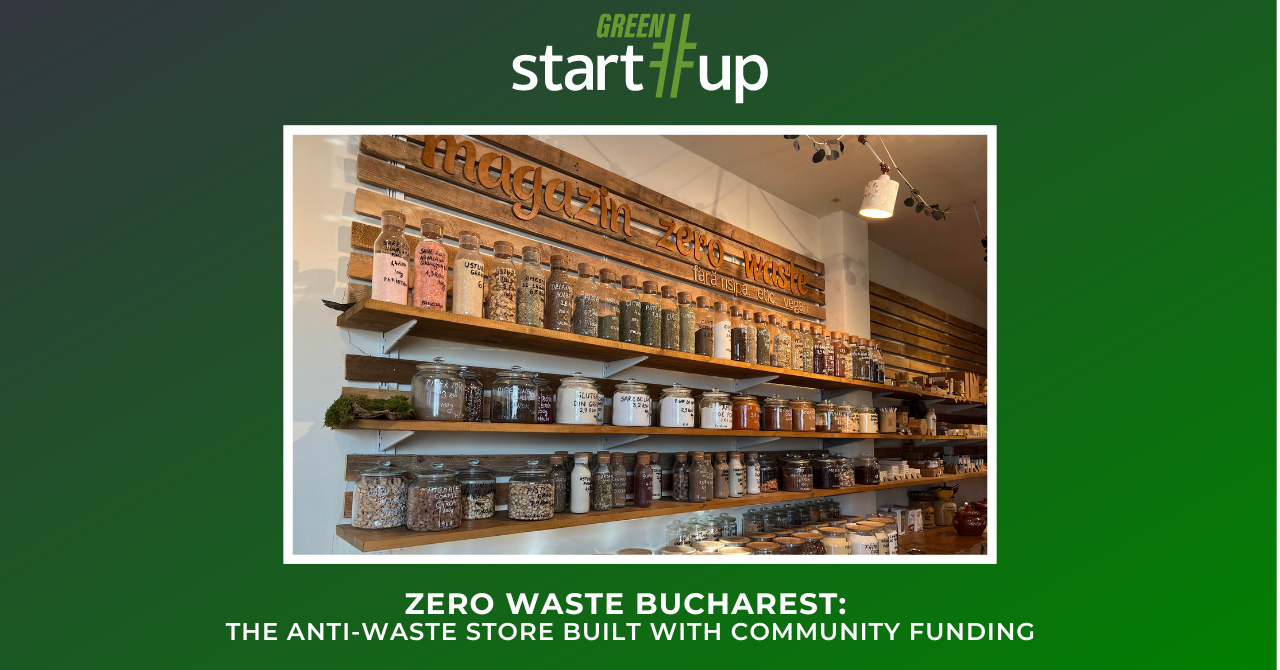


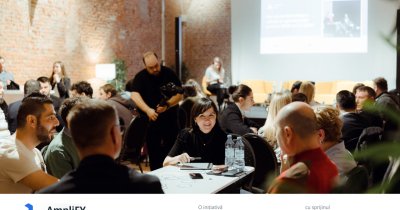
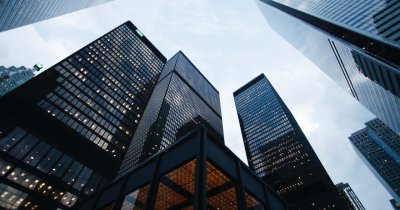
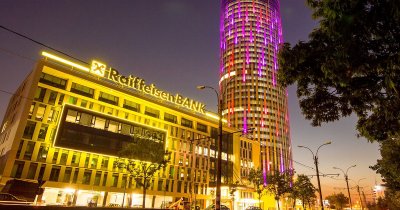



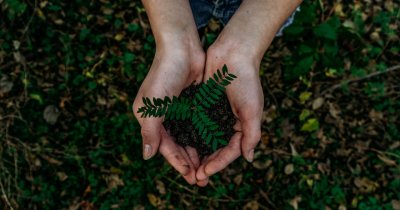
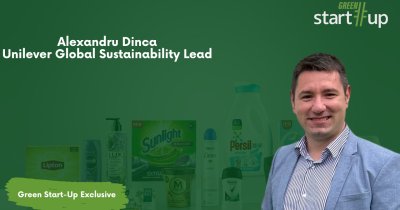
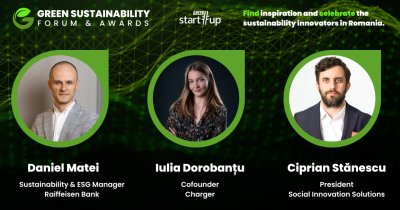
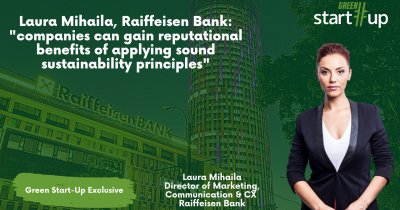
Any thoughts?